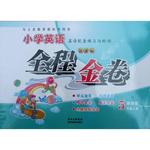��Ŀ����
����Ŀ������ԭ�ӹ����˵����ȷ����( )
A.��������ԭ�Ӳ�ȡsp3�ӻ�����ɼ��ķ��������幹�Ͷ�������������
B.CH4�����е�sp3�ӻ��������4����ԭ�ӵ�1s �����̼ԭ�ӵ�2p����ӻ����γɵ�
C.sp3�ӻ��������ͬһ��ԭ�������������s �����p����ӻ��γɵ�һ������������¹��
D.��AB3�͵Ĺ��ۻ�����,������ԭ��A������sp3�ӻ�����ɼ�
���𰸡�C
������������ԭ�Ӳ�ȡsp3�ӻ�,�ĸ�sp3�ӻ�����ڿռ����״������������,���������ԭ���ϻ��йµ��Ӷ�,���ӵ����幹�;Ͳ������������Ρ�CH4�����е�sp3�ӻ������̼ԭ�ӵ�һ��2s���������2p����ӻ����ɵġ�AB3�͵Ĺ��ۻ�����,Aԭ�ӿ��ܲ�ȡsp2�ӻ���sp3�ӻ���

 ȫ�̽��ϵ�д�
ȫ�̽��ϵ�д� ����5��2���ϵ�д�
����5��2���ϵ�д�����Ŀ��ij������ȤС���ѧУ��ƺ��ij�ִ���ͬ����ֲ��������Ŵ�ѧ�о������ָ���ֲ��Ļ�ɫ�к�ɫ�Ͱ�ɫ���������Dz������Ϻ��֣��ö���״��һ���Ŵ����ӿ�����Ϊ�˶Ըö���״����һ���о�����С�����ȡ�컨�Ͱ�ֲ���60�����Ϊ��������ӽ�ʵ�飬��������ʾ��
��� | �ӽ����� | �ӽ���� |
A�� | �컨���컨 | �컨�U��=14�U1 |
B�� | �컨���� | �컨�U��=7�U1 |
C�� | ������ | ȫΪ�� |
��1������ �����������ж� ɫΪ������
��2���Խ���A����û�г���3�U1��״����ȵ�ԭ�� ��
��3��B���ױ��ĺ컨�У����������Ӻ����ı���Ϊ ��
��4��Ҫ�ж�B���ӽ������ij�컨ֲ���Ƿ�Ϊ����������ķ����� ��